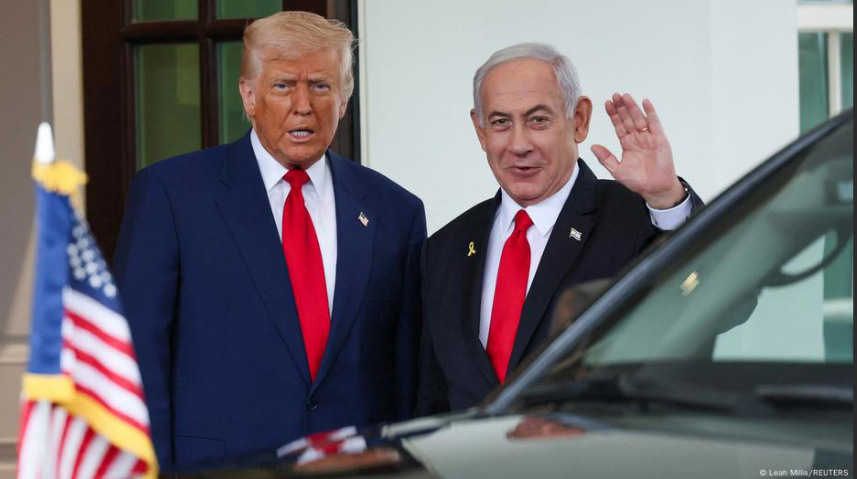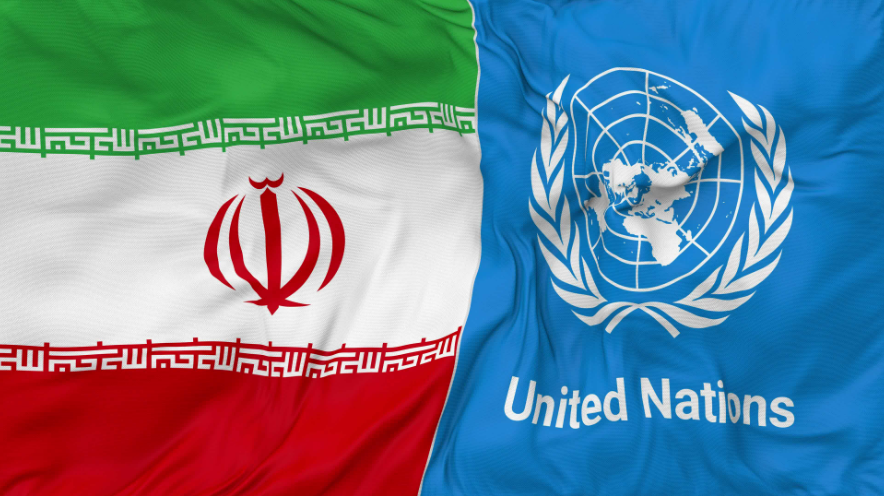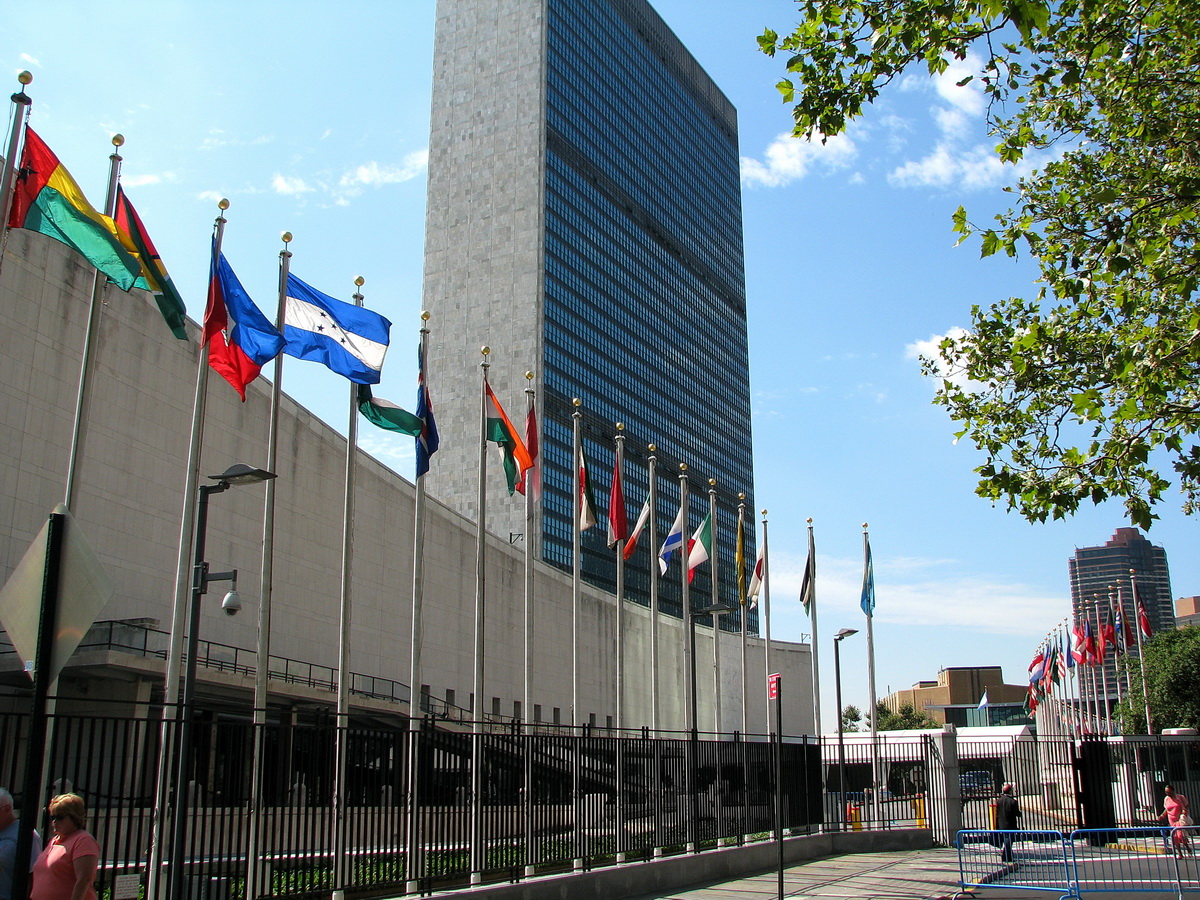By Dr. M. de Blois, Senior Fellow thinc.
It was a privilege to speak at the Parliament of the Czech Republic – first to celebrate on 28 May 2025 in the Chamber of Deputies the ‘Day of Jerusalem’, and then on 29 May to speak at a public hearing in the Senate.
It was encouraging that these events took place in the Parliament of one of the EU Member States, notwithstanding the hostile attitudes against the Jewish State all over Europe. Among the speakers on 28 May was the Deputy Speaker of the Chamber of Deputies, the Deputy Minister of Foreign Affairs of Israel and the President of the Israel Allies Foundation. I had the opportunity to speak on the legal aspects of the proposed transfer of the Czech Embassy in Israel from Tel Aviv to Jerusalem. That was also the topic of a public hearing in the Czech Senate that took place the following day, 29 May 2025. During this hearing the Czech Prime Minister expressed his support for the move of the Embassy to Jerusalem. Experts were asked to throw light on the question and I had been invited to present the legal arguments developed by thinc. in support of the proposal to move the Embassy. Many politicians and experts expressed their support for the initiative to locate the Embassy in the capital of Israel. Also representatives of the Jewish community and Christians committed to Israel had the opportunity to participate in the hearing. All-in all I was struck by the positive and supportive atmosphere towards Israel among Czech politicians.
Dr. de Blois’s speech at the Czech Parliament, Prague, 29 May 2025:
The legal status of Jerusalem, and the question of embassies in Jerusalem
Jerusalem and the Mandate for Palestine
The Mandate for Palestine.
This is the most elaborate incorporation of the Balfour Declaration (1917) and the implementation of the San Remo Resolution (1920), documents that envisaged the establishment of a Jewish national home in Palestine. The Mandate was adopted by the Council of the League of Nations on 24 July 1922, and entered into force on 29 September 1923.[1] It does not mention Jerusalem, although it is obviously included in the reference to the territory of Palestine. The Preamble of the Mandate gives a rationale for establishment of the Jewish national home in Palestine. It is ‘the historical connection of the Jewish people with Palestine and … the grounds for reconstituting their national home in that country.’ This gives international legal effect to both the close relationship that the Jewish people has with the land from Biblical times, as well as to the urgency for granting them a national home arising from the centuries of persecution in the Diaspora. There is maybe no place in the country that is so evidently connected to the history of the Jewish people as Jerusalem, having been the location of the First and the Second Temple and the seat of the kings of Israel and Judea. Because Jerusalem was the capital of the Jewish homeland in Biblical times, the intention was clearly that Jerusalem would again become the centre of the Jewish national home
Article 80 UN Charter
The rights of the Jewish people created by the Mandate are still relevant in legal terms, even after the League of Nations was dissolved in 1946 and the Mandate system had come to an end. That relevance is ensured by Article 80 of the Charter of the UN. This provision constitutes part of the transitional arrangements from the system of Mandates under the League of Nations to the system of Trusteeships under the UN Charter and its objective is to protect the rights of peoples under the Mandate system, until the conclusion of a trusteeship agreement. A Trusteeship Agreement for Palestine was never created.[2]
The borders of the State of Israel pursuant to the principle of Uti Possidetis Juris
In addition the following. Upon its establishment in May 1948, the borders of the State of Israel were determined by the international legal principle known as “uti possidetis juris”.[3] “Applying the rule would appear to dictate that Israel’s borders are those of the Palestine Mandate that preceded it. As a consequence of the application of this principle, the entire Mandate territory became the territory of the newly independent state.[4] Therefore, as a matter of fact and law the State of Israel automatically obtained territorial sovereignty over these territories, including Jerusalem. [5] The whole of Jerusalem: West and East.
Jerusalem and the Establishment of the State of Israel
On 14 May 1948, the Jewish leadership proclaimed the independence of the State of Israel. Immediately it was attacked by five Arab States, including (Trans-)Jordan, which captured the eastern part of Jerusalem, including the Old City. It expelled all Jews and destroyed the synagogues. Pursuant to the Armistice Agreement between Israel and (Trans-)Jordan (1949), the City was divided in West-Jerusalem, under Israeli control and East Jerusalem, including the Old City, under (Trans-)Jordanian control. The demarcation line was never meant to be an international border. Contrary to Article VIII of the Agreement, Jews were not allowed to pray at the Western Wall (Kotel) in the Old City after the cessation of hostilities. On 5 December 1949, the Israeli Cabinet declared that Jerusalem was the capital of Israel.[6] This was confirmed by the Knesset, on 23 January 1950[7]. Less than a month earlier, the Knesset had moved permanently to Jerusalem. Subsequently, in 1950, East Jerusalem was annexed by (Trans-)Jordan, in violation of international law.[8]
The Aftermath of the Six-Day War in 1967
As the outcome of the Six-Day War in 1967, when Jordan had attacked Israel again, Israel reunified Jerusalem, restoring the situation as it existed under the Mandate. The Knesset adopted legislation to ensure the application of Israeli law in both parts of the City. The reunification of Jerusalem under Israeli law in 1967 has been severely criticized by what is commonly called ‘the international community’. UN Resolutions have since 1967 consistently condemned Israel’s exercise of control over East Jerusalem (including the Old City) as in breach of international law. They ignore the strong arguments under international law for the sovereignty of Israel over the whole of the city, presented in previous paragraphs. These resolutions are however not binding!
Basic Laws on Jerusalem
On 30 July 1980, the Knesset passed a law, known as the ‘Basic Law: Jerusalem the Capital of Israel (5740-1980)’, establishing Jerusalem as the undivided capital of Israel. It declares ‘Jerusalem, complete and united’ to be ‘the capital of Israel’. This Basic Law was amended in 2000 by defining the limits of Jerusalem as determined after the Six-Day War on 28 June 1967. The amendment also provides that no powers concerning these limits shall be transferred to a foreign power. Another amendment to this Basic Law was adopted on 29 October 2024. It provides that no new foreign consulates will be opened in Jerusalem, only embassies. With this provision the Knesset wants to strengthen the status of Jerusalem as the capital of Israel and to encourage the establishment of embassies in Jerusalem.[9]
The Basic Law of 1980 discussed here is no longer the only Basic Law that defines the status of Jerusalem. In the early hours of 19 July 2018, the Knesset adopted the Basic Law: Israel as the Nation State of the Jewish People. In section 3, it also provides that: ‘Jerusalem, complete and united, is the capital of Israel’.
International criticism on the Basic Laws and their implementation
The Basic Law of 1980 was met with much international criticism, to begin with from the UN. Even before its enactment, the law was condemned by the UN Security Council in Resolutions 476 of 30 June 1980 (adopted at the instigation of Pakistan) and 478 of 20 August 1980. Also these resolutions are not binding! The last Resolution asserted that the Basic Law is in contravention of international law. Resolution 478 called for all states with diplomatic missions in Jerusalem to withdraw and relocate those missions. On 30 November 2017, the UN General Assembly adopted again a resolution on Jerusalem (A/RES/72/15) which refers explicitly to the Basic Law on Jerusalem and the proclamation of Jerusalem as the capital of Israel as measures that are null and void. A similar Resolution was adopted on 1 December 2021.[10] Not only the political organs of the UN have expressed their opinion on the status of Jerusalem. Also its judicial organ did so. In its Advisory Opinion – as the term already indicates: this is not a binding decision – of 19 July 2024 the ICJ addresses the legal situation of Jerusalem. The Court criticizes both Basic Laws referred to above in the context of acts of Israel amounting to annexation. It mentions the application of Israeli law in East Jerusalem. The Court observes that Israel’s measures have created “an inhospitable environment for the Palestinian population.”[11] All this supports the conclusion of the Court that this amounts to annexation – in this case of East Jerusalem- [12], contrary to international law.[13] Also the Court deliberately refused to take the Mandate for Palestine serious.
Diplomatic missions in Jerusalem
The establishment of diplomatic missions in Jerusalem deserves special attention. We have seen that Resolution 478 called for all states with diplomatic missions in Jerusalem to withdraw and relocate those missions. It is first of all remarkable that Resolution refers to Jerusalem as such, not just to East Jerusalem. The assumption that Israeli sovereignty over ‘West Jerusalem’ is undisputed is maybe not that strong. In any case, in response to SC Resolution 478 of 20 August 1980 most nations with embassies in Jerusalem relocated their embassies to Tel Aviv. Following the withdrawals of Costa Rica and El Salvador in August 2006, no country maintained its embassy in Jerusalem. This turned out not to be the permanent situation. Winds are changing here and there. On 6 December 2017, US President Donald Trump announced his Administration’s intention to move the US Embassy from Tel Aviv to Jerusalem[14], implementing the Jerusalem Embassy Act.[15] The removal was effectuated on the symbolic date of 14 May 2018. Before that date, on 21 December 2017, the UN General Assembly adopted in response Resolution ES-10/19 with the votes of 128 UN Member States in favor, including 22 of the Members of the EU. Six EU states abstained. Only nine UN Member States voted against, with 35 abstentions and 21 absentees. The GA expressed “its deep regret at the recent decisions concerning the status of Jerusalem.” It should be underlined, first of all, that the US President did not take a decision on the status of Jerusalem. The American president simply recognized the sovereign decisions of Israel. And Israel, as every sovereign State, was fully entitled to take these decisions on the choice of its capital. The GA in Resolution ES-10/19 further “calls upon all States to refrain from the establishment of diplomatic missions in the Holy City of Jerusalem, pursuant to Security Council (SC) resolution 478 (1980).
The remarkable step by the US Government has been followed by several states. Next to the USA, Guatemala, Kosovo, Honduras, Paraguay and Papua New Guinea have established their embassies in Jerusalem. Further, the Republic of Fiji has decided to do so.[16] It has been reported also a similar move of the Czech Republic and Hungary can be expected, although no decisions have been made as yet.[17] Also Ecuador and Argentina are considering it. Notwithstanding these new developments the GA of the UN did not depart from its stance on the embassy issue. In Resolution ES-10/24 of 18 September 2024, adopted with the purpose to implement the ICJ’s Advisory Opinion of 19 July 2024, it called upon all States to comply with their obligation under international law, which includes “Abstaining, in the establishment and maintenance of diplomatic missions in Israel, from any recognition of its illegal presence in the Occupied Palestinian Territory, including by refraining from the establishment of diplomatic missions in Jerusalem, pursuant to Security Council resolution 478 (1980) of 20 August 1980”. Again the whole of Jerusalem is implied.
Reflecting on the criticism of the UN-organs on the location of foreign embassies in Jerusalem it is, finally, important to underline that there is no binding rule of international law that could support the frequent calls of the SC and the GA. The basic principle of international law concerning the establishment of diplomatic relations between states and of permanent diplomatic missions is, according to Article 2 of the Vienna Convention on Diplomatic Relations (1961), the mutual consent between the States concerned. Article 21 obliges the receiving State to facilitate acquisition of premises or assist in obtaining accommodation in some other way. It is clear that the Israeli Government fully agrees with the decisions of States to move their embassies to Israel’s capital, so there are no legal impediments for relocation of an embassy to Jerusalem. According to the UN Charter, the SC and the GA have no powers to interfere with the sovereign decisions of both the sending and the receiving state on the location of an embassy. On the contrary, they should respect the principle of the sovereign equality of its Member States pursuant to Article 2 (1) of the UN Charter. Apparently, the SC and the GA feel free to single out one of the UN Member States and subject it to criticism for the choice of its capital and the location of embassies therein. There is no example of similar treatment of another Member State about such a choice. The approach is one of the numerous examples within UN practice of singling out the Jewish State and subjecting it to special standards. It is the international equivalent of the many abject examples in history of the special treatment of Jews in national legal orders; in other words: anti-Semitism.
[1] Resolution of the Council of the League of Nations adopted during the Twenty-Third Meeting (Private) of the Council on September 29th 1923, League of Nations Official Journal, Volume 4, 1923, Issue 11, (November 1923) at 1355.
[2] After 1949 it was no longer possible to subject the territory of Palestine to the U.N. Trusteeship system, as Israel had by then become a recognized State and a Member of the United Nations: see Article 78 of the Charter.
[3] Abraham Bell & Eugene Kontorovich ‘Palestine, Uti Possidetis Juris and the Borders of Israel’ (2016) 58 Arizona Law Review 633.
[4] Land, Island and Maritime Frontier Dispute (El Salvador/Honduras, Nicaragua intervening), 1992 I.C.J. 351, 42 (Sept.
11, 1992) – the Court noted here that one of the purposes of uti possidetis juris is to avoid that there is a territory without a sovereign (terra nullius).
[5] Bell & Kontorovich Op.Cit. at 633.
[6] Martin Gilbert, Jerusalem in the Twentieth Century, John Wiley & Sons, Inc., New York, 1996, p. 243.
[7] Idem, p. 244.
[8] Idem, p. 247.
[9] https://www.middleeastmonitor.com/20241030-new-israel-law-means-only-embassies-are-allowed-in-jerusalem/. See also https://main.knesset.gov.il/en/news/pressreleases/pages/press18924q.aspx.
[10] A/RES/76/12.
[11] Idem, par. 165.
[12] Idem, par. 173.
[13] Idem, par. 179.
[14] . https://globalnews.ca/news/3900657/donald-trump-full-speech-u-s-.
[15] . Jerusalem Embassy Act of 1995, Public Law 104-45, 8 November 1995, 109 Stat. 398.
[16] https://www.gov.il/en/pages/fijian-government-s-decision-to-open-an-embassy-in-jerusalem.
[17] We are writing, May 2025. See https://www.jns.org/czech-embassy-denies-reported-decision-regarding-jerusalem-move/.https://www.jns.org/hungary-expected-to-announce-embassy-move-to-jerusalem-withdraw-from-icc/



